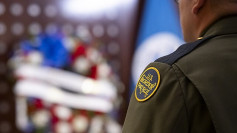The Supreme Court has taken on the task of deciding a pivotal question regarding former President Donald Trump's claim to immunity in the election subversion case led by special counsel Jack Smith. This decision introduces yet another significant case concerning Trump to the court's agenda, further delaying the federal trial that has captivated the nation's attention.
Scheduled to hear arguments in the week of April 22, the court's decision could have profound implications for the Republican front-runner's legal battles and his aspirations for a return to the presidential office. This development coincides with Trump's separate legal challenge in New York, where he faces charges related to falsifying business records to conceal hush money payments before the 2016 election-a charge to which he has pleaded not guilty.
The Supreme Court's intervention halts a lower court's ruling against Trump, maintaining the status quo until a final decision is made. The special counsel's office, represented by Smith, has refrained from commenting on this latest turn of events.
This scenario grants Trump a temporary reprieve on two fronts: it allows him to present his case for a broad interpretation of presidential immunity, which could significantly impact the myriad of legal challenges he faces, and it delays the trial, buying his legal team valuable time.
The legal community closely watches this development, with analysts noting the Supreme Court's delay in announcing its decision to take the case, suggesting intricate behind-the-scenes deliberations. Steve Vladeck, a CNN Supreme Court analyst, remarked on the absence of public dissent from the justices and the implications of the delay for the trial's timing, emphasizing the tactical advantage this grants Trump, irrespective of the case's eventual outcome.
Trump's push for Supreme Court intervention stems from an emergency request filed on February 12, seeking to overturn a lower court's dismissal of his immunity claim. He argues that the absence of immunity for former presidents would fundamentally alter the presidency, making future officeholders vulnerable to criminal charges post-tenure.
However, this argument faced unanimous rejection from a DC Circuit panel earlier this month, which firmly dismissed Trump's immunity claims in a detailed 57-page opinion. The panel's ruling underscores the seriousness of the allegations against Trump, rejecting the notion that his actions while in office shield him from prosecution.
The Supreme Court's willingness to address this narrow yet consequential question of a former president's immunity from criminal prosecution for acts while in office marks a critical juncture. Trump contends that the fear of subsequent criminal charges could deter presidents from fulfilling their duties, potentially chilling executive action.
Legal analysts, including Jeffrey Toobin, view the Supreme Court's decision to hear the case as a strategic win for Trump, noting that even an eventual ruling against him would delay the federal trial on January 6 issues, making it unlikely before Election Day. This delay ensures that Trump's criminal trial in New York will be the only one he faces before the upcoming election, positioning the Supreme Court's involvement as a crucial factor in the unfolding legal drama surrounding the former president.
As the Supreme Court prepares to tackle this and other related cases, its decisions will not only influence Trump's legal standing but also set precedents that may affect the balance of power and accountability at the highest levels of American government.






